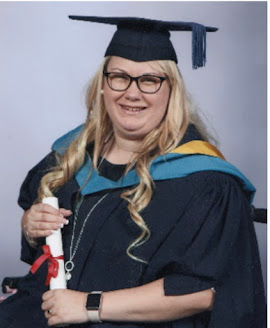Students sitting this year’s bar exams are alleging they are being discriminated against as reasonable adjustments and basic rights are not being met.
Due to the Covid pandemic, the exams for aspiring barristers, which were due to be sat in April, are now due to be held throughout August. This leaves many with concerns who are due to start pupillage in September.
Many students are sitting their exams at home via ‘remote proctoring’. This means sitting in front of a computer for three hours, sometimes more, at a time without moving. Moving away from the situated camera would render the exam a failure. Students who have already sat their at home exams are already complaining that they had an hours wait before the exam commenced.
For those who would be unable to sit their exam at home for various reasons, they will need to sit their exams at a test centre or defer until December. This means some students would be unable to commence pupillages or employment as planned. Visas have also started to expire meaning students are unable to sit the exam in the UK.
The Bar Standards Board released exam slots for those without reasonable adjustments first. This left those with additional requirements fighting for their spots as their local test centre was fully booked and they would have to travel miles away for exams that started as early as 8am in the morning. For individuals with disabilities this is an added stress and tiring in itself before the exams even start. For many this meant an overnight stay with an additional cost.
Further, students with reasonable adjustments were unable to book using the online booking system which is free. Instead they were directed to the Parsons Vue telephone booking line. A number of students allege this is a premium number and cost some in the region of £200. Also many students were then on hold for hours waiting to be served only to be hung up on.
Many students who were finally able to get through to someone were told that their reasonable adjustments could not be accommodated. This was despite on the 3rd July the BSB explicitly stating that “no student should be asked to waive a reasonable adjustment” 蜉
Some did not have options at all and were told they would be contacted. With exams due to start some are still waiting.
However on the Bar Standards Board website they have advised any student who is still waiting for an exam date should email Parson Vue directly.
Students are now receiving emails to say their exams have been cancelled with no reason or replacement option given. Some students did not receive emails but instead found out via social media from other students.
Further, it transpires that students are being denied their fundamental right to water during their exams. Unless adjustments have been put in place to take fluids into the exam centre with them, students must leave all drinks outside.
With some areas of the country due to hit 37 degrees tomorrow, some students will have to choose between hydration and their future. It has been scientifically proven蜉 that dehydration can lead to confusion, but students are worried that drinking water will lead to them needing to use the bathroom. Something else that is also not allowed. Parsons Vue and the Bar Standards Board are yet to comment on the situation.
For some time now, the BSB have been trying to make the bar a more diverse and accessible organisation. An investigation into the failing of the exams is being called for by the Association of Disabled lawyers ‘and the impact of students. It should publish a public report on its findings’.蜉
The Students against the BSB Exam Regulations (SABER) have also issued urgent action from the BSB to “remedy the adverse and discriminatory effects of the August exam regulations”蜉
According to the BSB蜉 Diversity at the Bar published in January this year individuals with disabilities are hugely unrepresented at the Bar with just 6 per cent of Barristers who responded to the survey disclosing they have a disability. This is less than half of the national average.
The Bar Standards Board, who has a statutory obligation under the Equality Act 2010 has previously released a statement advising it is committed to delivering diversity and equality and fairness must be a standard principle within their establishment.
The Bar Standards Board have not yet advised whether or not they will be opening an investigation into this year bar exams. If they did look implementing some if not all of the recommendations from the Association of Disabled Lawyers, The Young Legal Aid Lawyers and SABER, then the BSB may start to re-gain students confidence.
Written By: Victoria-Jayne Scholes

Comments
Post a Comment